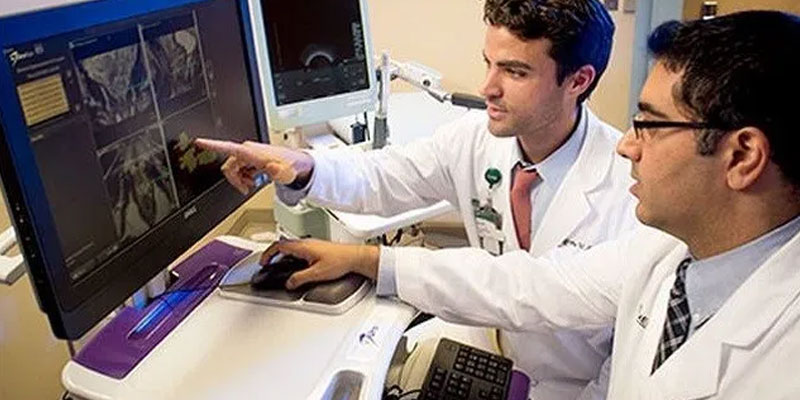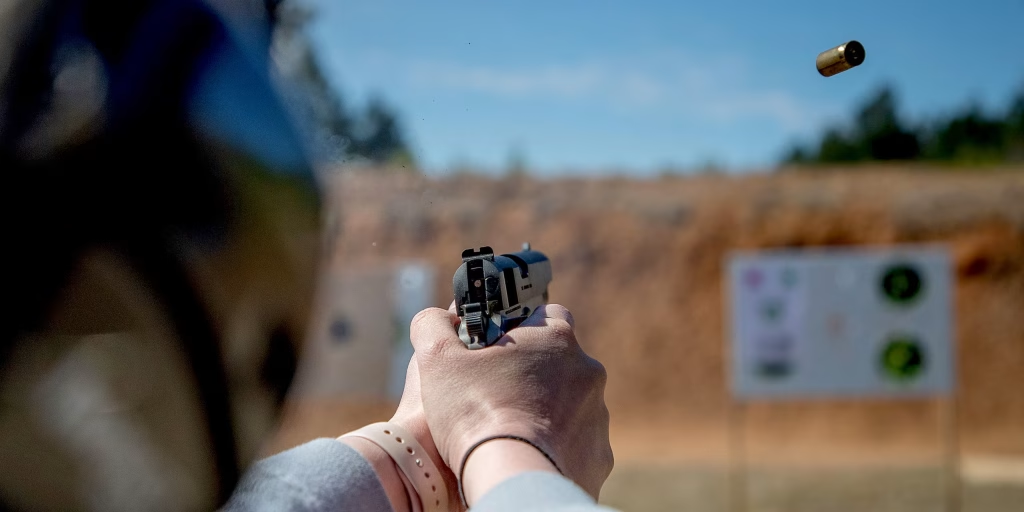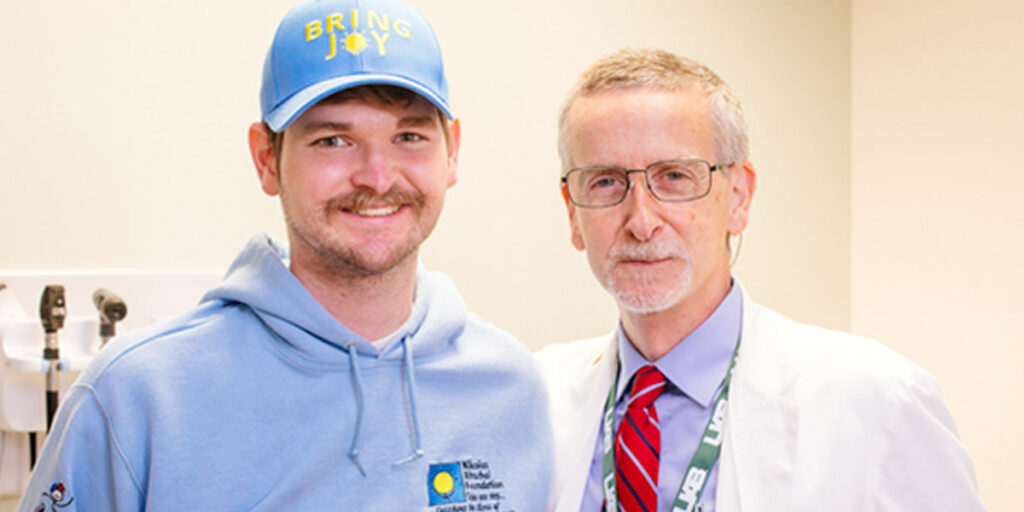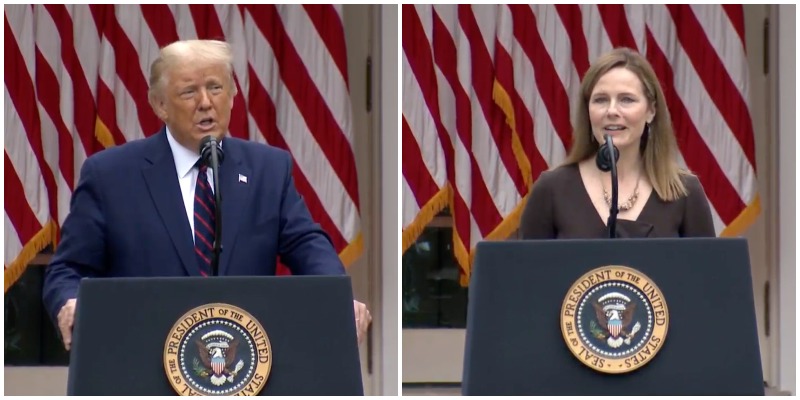Charles Latham can never forget the 16 men he has spoken to, one-on-one, over the years about the need to be screened for prostate cancer.
They included friends and even two of his own brothers. Fifteen of the men heeded his advice and were tested, diagnosed and successfully treated for prostate cancer. Still, the one man who waited too long to get his screening will forever remain at the forefront of Latham’s mind.
“He said, ‘Tell my story. I should have listened to you,’” Latham said, remembering a conversation with his late friend in his final days. “I always have to talk about the one who asked me to tell his story.”
Latham, a member of the Community Advisory Board at the O’Neal Comprehensive Cancer Center, is among many associated with the Cancer Center’s Office of Community Outreach & Engagement who are dedicated to spreading the message of screening, early detection and survival.
Through its staff, its Community Health Advisors and its Community Advisory Board, the Office of Community Outreach & Engagement continues to reach more men and their families and to stress men’s health and prostate cancer awareness.
At least 179 of the current 213 Community Health Advisors have a history of prostate cancer or have a relative with a history of the disease. Latham, Charles Feagin and Nathaniel Rutledge are Community Advisory Board members who also serve as hands-on advocates for men’s health and prostate cancer awareness.
As members of the Office of Community Outreach & Engagement’s Prostate Cancer Working Group, the three men also advise in a study to develop culturally appropriate messages and tools to increase prostate cancer screening rates among African American men. Black men die of prostate cancer at a rate 2.5 times higher than that of their white counterparts.
The effort is sponsored by the Mike Slive Foundation for Prostate Cancer Research. Results will be used to increase knowledge and improve attitudes toward prostate cancer screening across the state. Other Community Advisory Board members participating in the working group are the Rev. Curtis Jackson and Trevis Smith.
Latham’s personal story of survival continues to motivate him as an advocate for prostate cancer awareness.
Latham was 50 years old and preparing to return home to his native Grenada, Mississippi, to retire when he received a disturbing report from his doctor. It was a positive diagnosis of prostate cancer.
“I decided to have the cancer taken out of my body. I’m convinced that, had I not gone in for that examination, I would be dead today,” said Latham, now a 16-year cancer survivor. “Any time that a person is faced with their own mortality, it changes the way you see things. It changes the way you approach life.”
Jerry Feagin
Nearly everyone in his Butler County community knew Jerry Feagin’s father. Willie George Feagin was a businessman and church deacon. However, when the elder Feagin died of prostate cancer in 1997, there was little talk about the disease, much less talk of the need for early testing. Grief led his son to find a new calling to educate himself, his family and his community about prostate cancer.
“Everybody knew my dad, so when he passed, a lot of people were affected by that,” Feagin said. “He just didn’t have the treatment options that we have today. It was a shocker because a lot of guys weren’t aware of prostate cancer.”
Since then, Feagin said men in his family, from Niagara Falls to Texas, have created a network of support for each other.
It has paid off. At least seven of Feagin’s relatives were diagnosed early and successfully treated for prostate cancer.
“I became an advocate for it, urging my family members to get tested,” Feagin said. “They’ve all started getting checked, going to the doctor and sharing family history. All the men became aware of it and urged each other to get checked.”
In 2013, Feagin was also diagnosed with prostate cancer, but his earlier experience with his father left him prepared.
“It wasn’t bad. They removed it, and thank God it was early,” he said. “Had we had the technology that we have today, I do believe my father would have survived prostate cancer.”
Five years ago, Feagin formed a partnership with the Homewood-based Urology Centers of Alabama to coordinate an annual prostate screening clinic in Butler County. “When we brought screenings down here, you’d be surprised at the number of men we found with prostate cancer,” he said.
The Butler County screenings have grown to reach an even broader demographic of men. The message is spreading, he said.
“Losing my father was one of the most drastic things I’ve ever dealt with,” Feagin said. “But by losing dad, it helped a lot of people too.”
Nathaniel Rutledge
Nathaniel Rutledge’s involvement in men’s health care began when he led the Bessemer Police Department as its chief. He noticed that too many of his officers were in poor health and were reluctant to consult doctors.
“I found that, far too often, men try to take things in stride and operate with the attitude that no news is good news and ‘what I don’t know won’t hurt me,’” Rutledge said. “Obviously, that’s one of biggest mistakes we could make. We found out that my officers were more susceptible to having issues with the prostate, and they weren’t going to the doctor.”
Rutledge then devised a plan to get his officers to the doctor’s office more often. He organized physical training programs for the officers and urged them to seek medical clearance from a doctor to participate. While meeting with their doctors, many officers discovered serious medical conditions.
“It was a long stretch to try to get the guys to look at themselves, but once they did it, [it] became a catalyst to getting more things checked and that’s what we were hoping to get to from the beginning,” Rutledge said. “If you can just get the conversation started, that is the key.”
While talking to communities in Bessemer as the police chief, Rutledge encourages citizens to be aware of their surroundings and call officials when things appeared suspicious. He calls it “JDLR,” an abbreviation for something that “just don’t look right.” Rutledge said the same principles apply for men’s health.
“The best thing is for gentlemen to pay attention and not dismiss things that just don’t seem right,” Rutledge said. “That’s when it’s time call the doctor. I give examples of why it is important to be checked and why I am regularly checked. You try to take your message to as many people as possible.”
Candor, humor and genuine concern
Each man brings his own personality and communication style to conversations with groups or individuals when discussing personal issues related to men’s health.
Feagin’s easygoing style allows some men to both confide in him and seek information from him, he said. As a dental hygienist, Feagin often has time for small talk with patients in between procedures.
“When we sit there talking, I have a little time, and I can discuss things with them,” he said. “When they say you have cancer, cancer is not waiting on you to make a decision. I know some horror stories about men who did not make it because they waited too long.”
Both Feagin and Latham mix both humor and frank talk when discussing sensitive issues associated with embarrassment and intimacy that are related to prostate cancer screening and treatment.
“If I can help save other men, I talk to them straight up,” Latham said. “I tell it like I see it: ‘Don’t worry about any limitations afterward. You are still alive.’”
Latham often talks about his friend, the 16th man, who was too embarrassed and fearful to seek treatment for his prostate cancer. When he finally agreed to be treated, the cancer had spread and it was too late, Latham said.
Latham does his best to personally relate to any concerns as he urges men to agree to seek screenings or undergo treatment after a diagnosis.
“I tell men and women that this is going to test your relationship. I say to the men, ‘If you have a woman that’s willing to stick by your side throughout this situation, you ought to appreciate that woman,’” he said. “That’s how I get some of the men to prepare for what’s ahead. I’m telling you, from the perspective of a man who has gone through it.”
Learn more about prostate cancer and screening.
This story originally ran in the September 2020 issue of Community Connections, the monthly newsletter of the Office of Community Outreach & Engagement at the O’Neal Comprehensive Cancer Center at UAB.
(Courtesy of Alabama NewsCenter)













